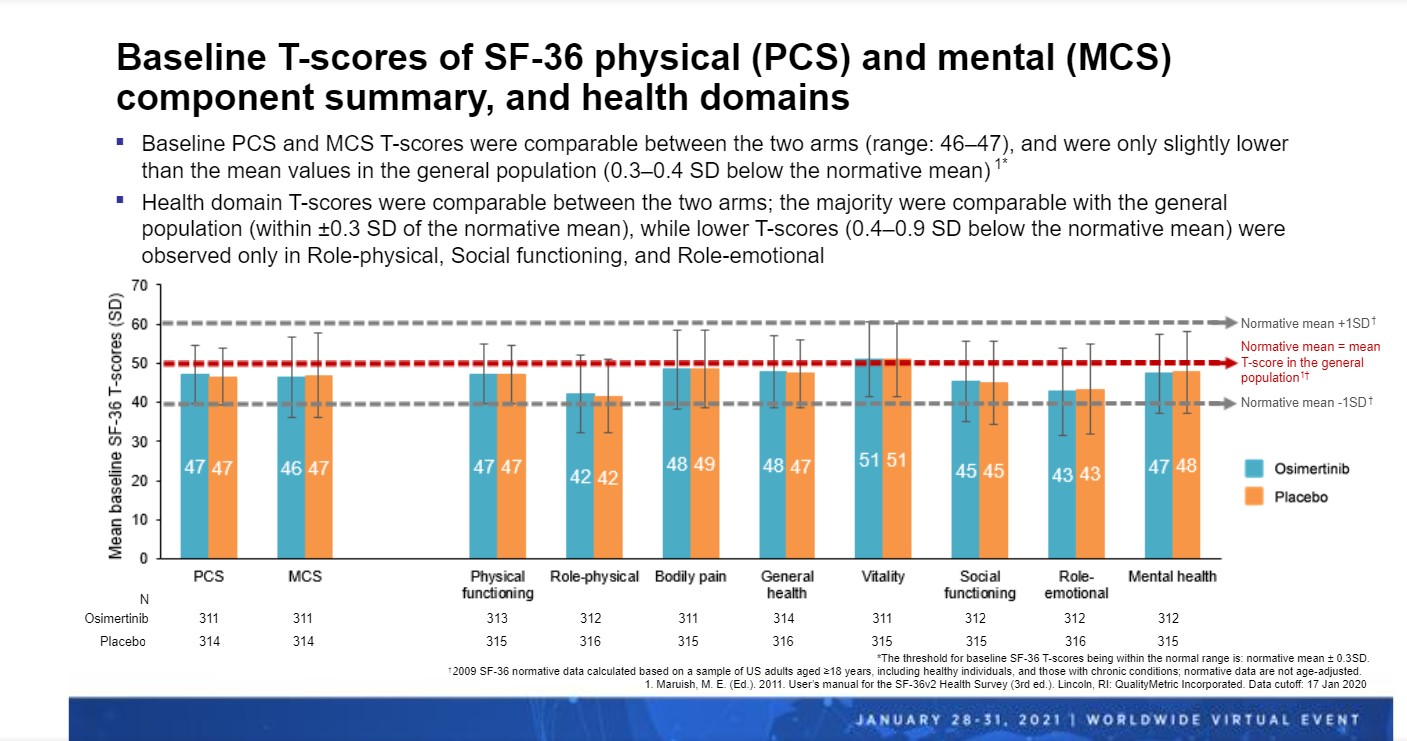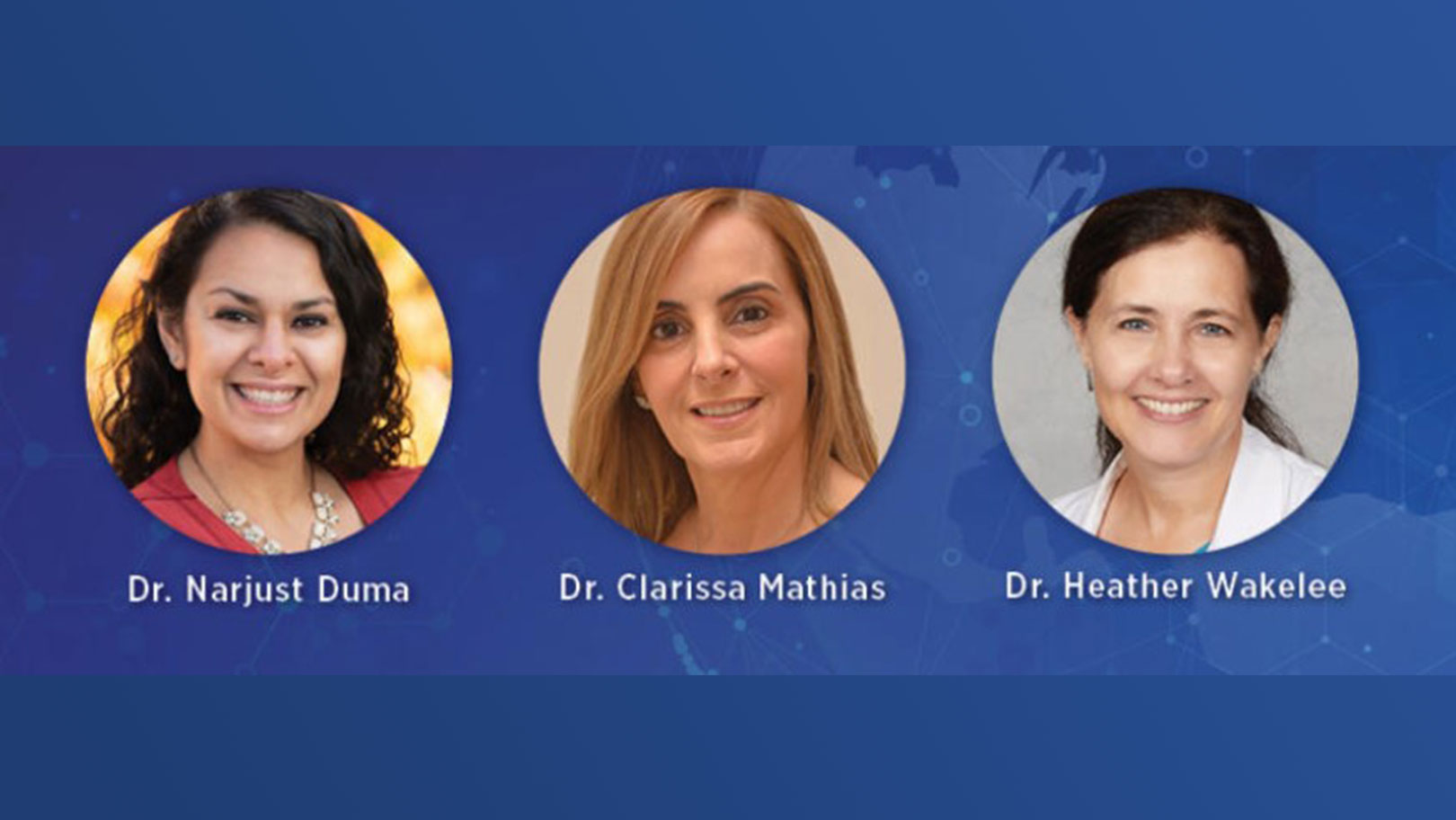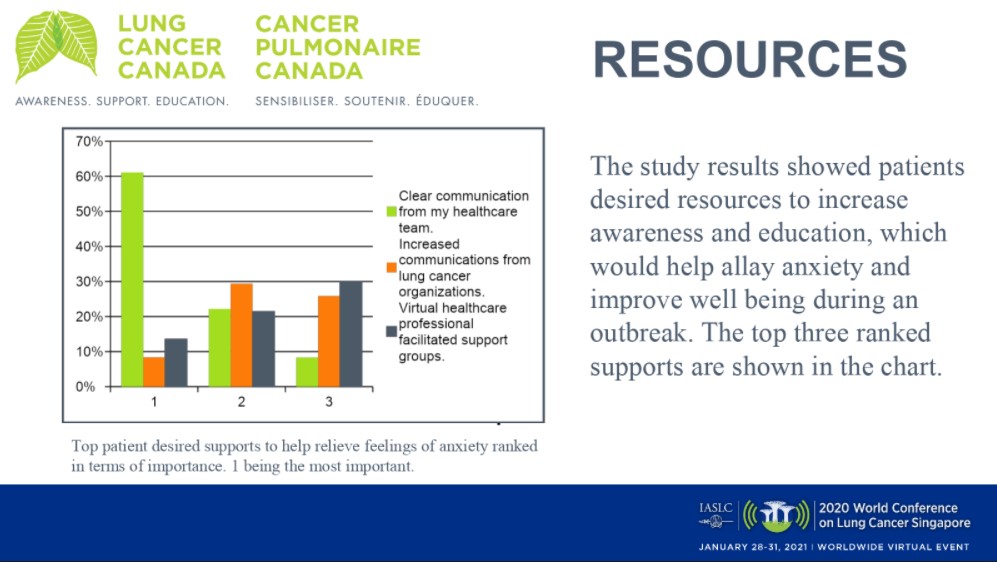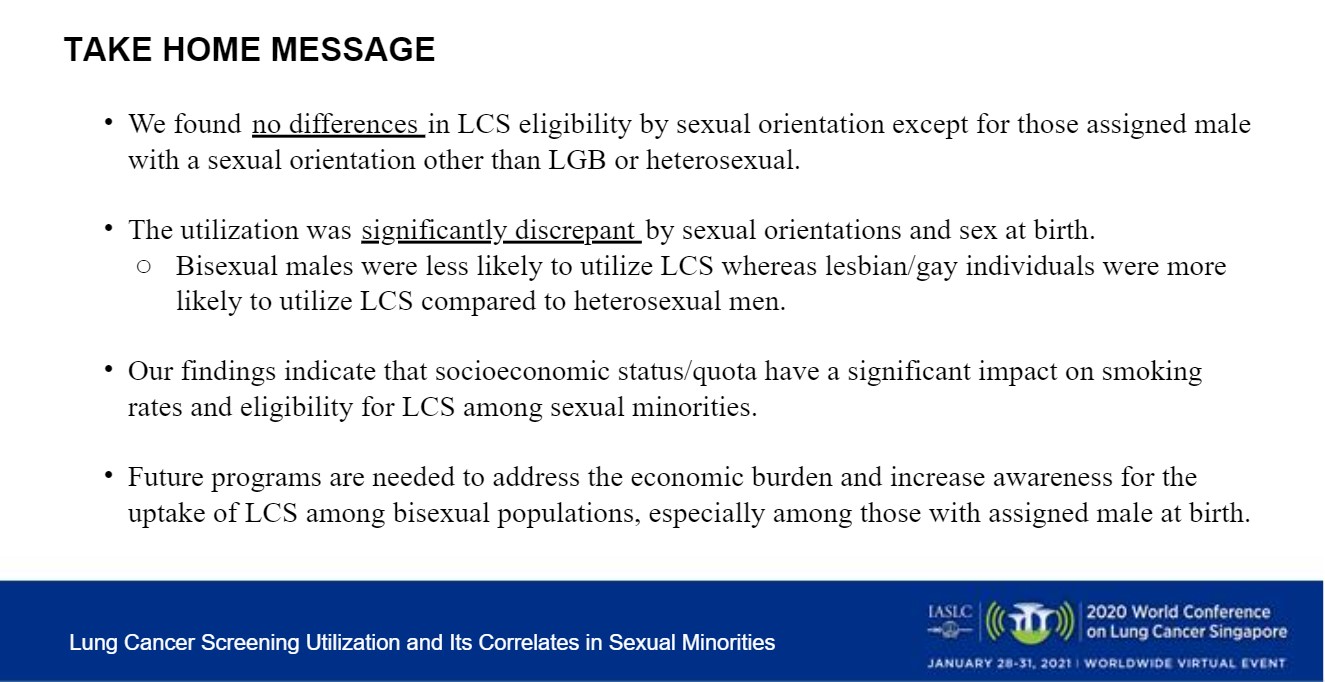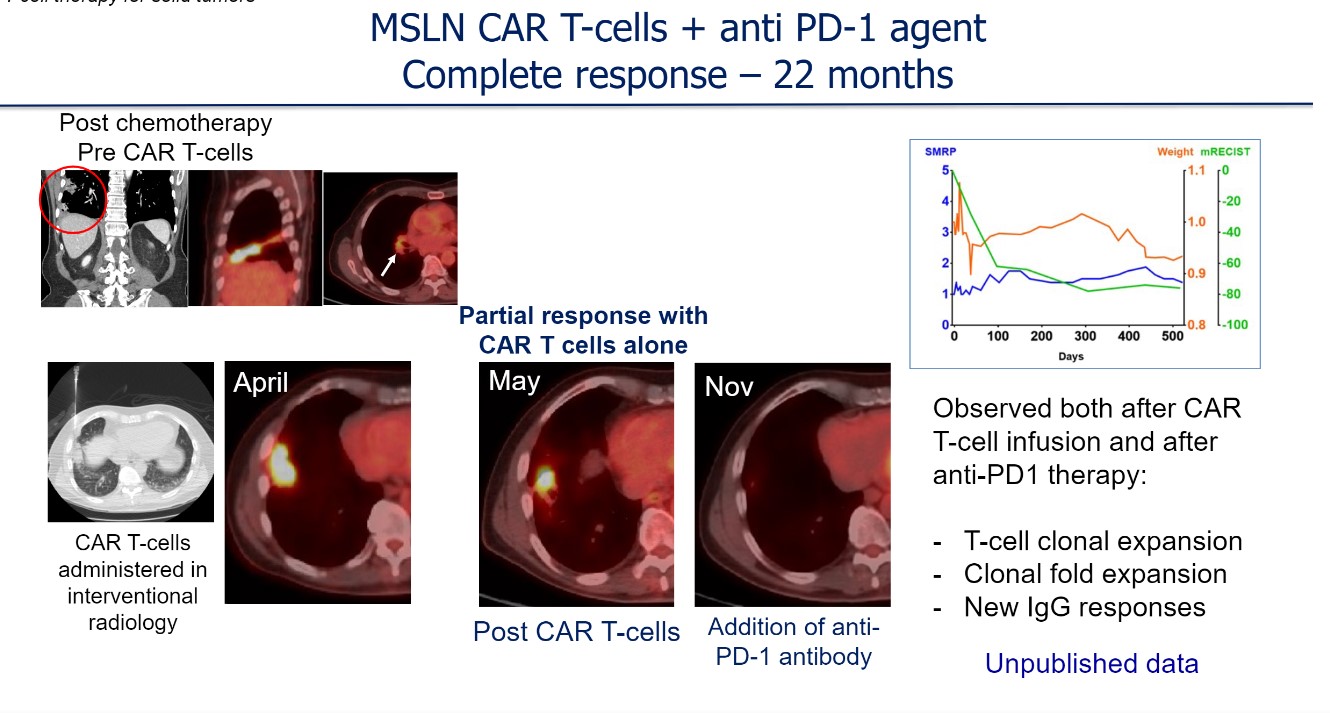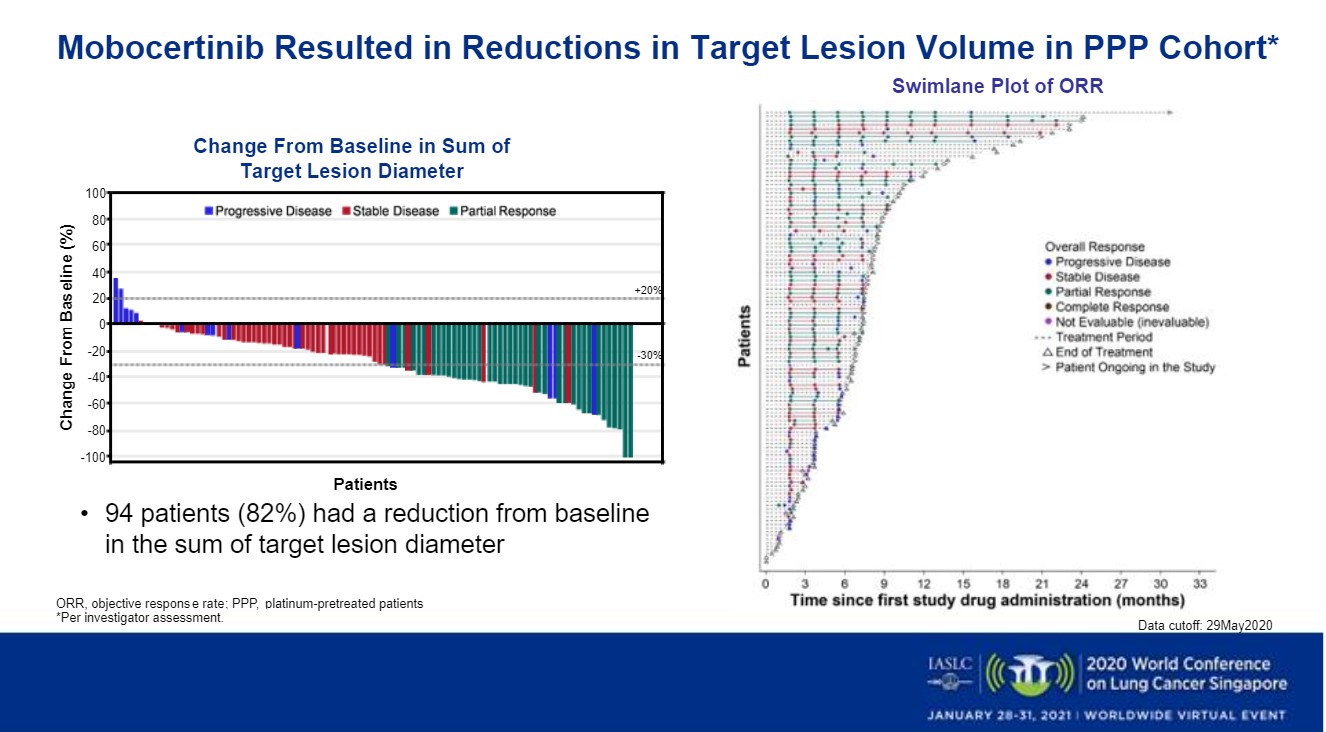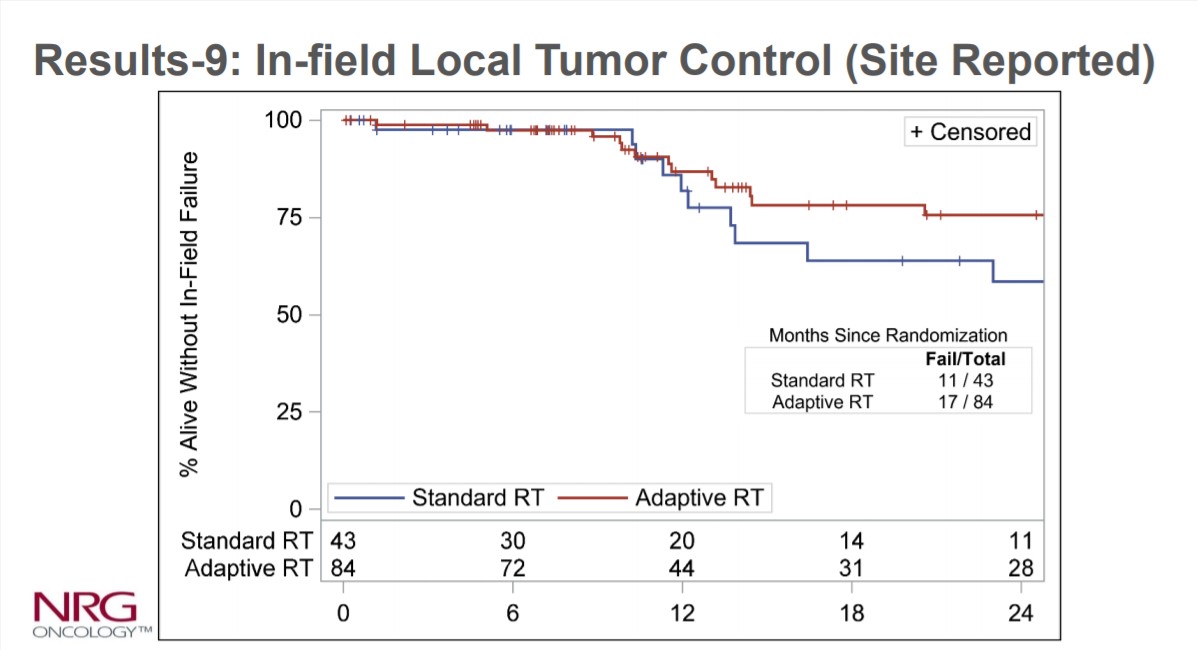2021
-
Additional ADAURA Analyses Help Support the Benefit of Adjuvant Osimertinib in Patients With Resected EGFR-Mutated NSCLC
The randomized phase III ADAURA trial stirred up considerable excitement last year when results from an unplanned interim analysis revealed an 80% reduction in the risk of disease recurrence or […]
-
Lung Cancer Screening for Women: Understanding the Risks and the Benefits
Although science has proven that both men and women significantly benefit from lung cancer screening by low-dose CT, the NELSON study showed that women benefit substantially more than men.1 However, […]
-
Becoming a Critical Actor—Learning about Improving Equity and Inclusion in the Workplace
The recent Women in Thoracic Oncology Networking Event provided its audience with the rare opportunity to speak openly and honestly about challenges in the workforce, from microaggressions to wage gaps […]
-
LGBT Cancer Survivors and Disparities-Related Barriers That May Affect Survival
Cancer survivors who are lesbian, gay, bisexual, or transgender (LGBT) face potentially survival-limiting health disparities, and this should be addressed by the healthcare system. Those were the findings of a […]
-
Distressed Due to Pandemic, Patients with Lung Cancer Seek Educational Resources
A Canadian survey conducted repeatedly throughout the COVID-19 pandemic reflects a rise in feelings of isolation and vulnerability among patients with lung cancer. Survey results indicate that patients want educational […]
-
Practice-Changing Initiatives Benefit the Medical Team, Patients
The social and emotional needs of patients are increasingly being recognized as equally important to their physical needs, and use of multidisciplinary teams is helping to bridge the gaps between […]
-
Addressing Lung Cancer Screening Disparities in the LGBT Community
Historically, sexual minorities have been underserved in the healthcare setting. Members of this patient population may be less likely to receive optimal care, especially when it comes to preventive care […]
-
Translating Early Research to Adapt CAR T-Cell Therapy to Solid Tumors
Although the initial research into adoptive T-cell therapy for solid tumors was related to tumor-infiltrating lymphocytes, there is a growing interest in the use of adoptive T-cell therapy for the […]
-
Mobocertinib May Offer Effective, Safe Treatment in NSCLC with EGFR Exon 20 Insertion Mutation
With no approved treatments for advanced NSCLC with EGFR exon 20 insertion mutations, treatment is mainly limited to chemotherapy, as these cancers don’t respond to traditional tyrosine kinase inhibitors (TKIs). […]
-
More Data Needed on Benefit of Adaptive Radiation Approaches in Locally-Advanced NSCLC
The results of one phase II study looking at PET/CT-guided adaptive radiation therapy and one PET boost trial in locally advanced NSCLC were presented in an Oral Abstract Session (OA2). […]








